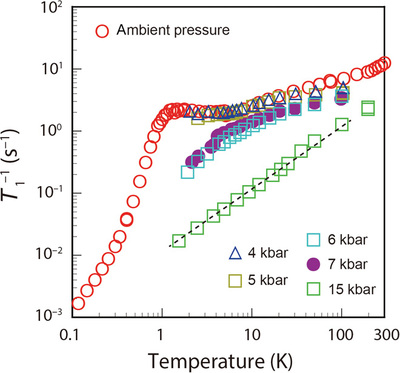PRESS RELEASE
- Research
- 2017
Slow dynamics of electrons at a metal–Mott insulator boundary in an organic system with disorder
Authors
Tetsuaki Itou, Eri Watanabe, Satoru Maegawa, Akiko Tajima, Naoya Tajima, Kazuya Kubo, Reizo Kato, and Kazushi Kanoda
Abstract
The Mott transition—a metal-insulator transition caused by repulsive Coulomb interactions between electrons—is a central issue in condensed matter physics because it is the mother earth of various attractive phenomena. Outstanding examples are high–Tc(critical temperature) cuprates and manganites exhibiting colossal magnetoresistance. Furthermore, spin liquid states, which are quantum-fluctuation–driven disordered ground states in antiferromagnets, have recently been found in magnetic systems very near the Mott transition. To date, intensive studies on the Mott transition have been conducted and appear to have established a nearly complete framework for understanding the Mott transition. We found an unknown type of Mott transition in an organic spin liquid material with a slightly disordered lattice. Around the Mott transition region of this material under pressure, nuclear magnetic resonance experiments capture the emergence of slow electronic fluctuations of the order of kilohertz or lower, which is not expected in the conventional Mott transition that appears as a clear first-order transition at low temperatures. We suggest that they are due to the unconventional metal-insulator fluctuations emerging around the disordered Mott transition in analogy to the slowly fluctuating spin phase, or Griffiths phase, realized in Ising spin systems with disordered lattices.

Science Advances:http://advances.sciencemag.org/content/3/8/e1601594.full

